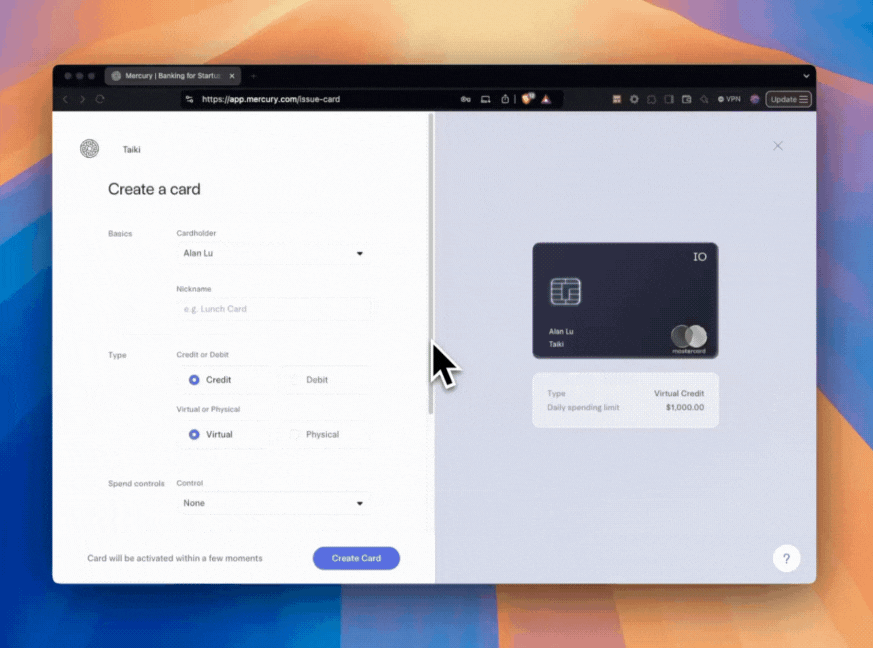An AI agent that generates integration code by reverse-engineering platforms' internal APIs.
You use create_har.py to generate a file containing all browser network requests, a file with the cookies, and write a prompt describing the action triggered in the browser. The agent outputs runnable Python code that hits the platform's internal endpoints to perform the desired action.
Let's assume we want to download utility bills:
- The agent identifies the request that downloads the utility bills.
For example, the request URL might look like this:
https://www.example.com/utility-bills?accountId=123&userId=456 - It identifies parts of the request that depend on other requests.
The above URL contains dynamic parts (accountId and userId) that need to be obtained from other requests.
accountId=123 userId=456 - It finds the requests that provide these parts and makes the download request dependent on them.
GET https://www.example.com/get_account_id GET https://www.example.com/get_user_id - This process repeats until the request being checked depends on no other request and only requires the authentication cookies.
- The agent traverses up the graph, starting from nodes (requests) with no outgoing edges until it reaches the master node while converting each node to a runnable function.
- Generate a dependency graph of requests to make the final request that performs the desired action.
- Allow input variables (for example, choosing the YEAR to download a document from). This is currently only supported for graph generation. Input variables for code generation coming soon!
- Generate code to hit all requests in the graph to perform the desired action.
- Set up your OpenAI API Keys and add the
OPENAI_API_KEYenvironment variable. (We recommend using models that are at least as capable as OpenAI o1-mini. Models on par with OpenAI o1-preview are ideal.) - Install Python requirements via poetry:
poetry install - Open a poetry shell:
poetry shell - Run the following command to spawn a browser:
Log into your platform and perform the desired action (such as downloading a utility bill).
poetry run python create_har.py - Run Integuru:
You can also run it via Jupyter Notebook
poetry run python -m integuru --prompt "download utility bills"main.ipynb
After setting up the project, you can use Integuru to analyze and reverse-engineer API requests for external platforms. Simply provide the appropriate .har file and a prompt describing the action that you want to trigger.
poetry run python -m integuru --help
Usage: python -m integuru [OPTIONS]
Options:
--model TEXT The LLM model to use (default is gpt-4o)
--prompt TEXT The prompt for the model [required]
--har-path TEXT The HAR file path (default is
./network_requests.har)
--cookie-path TEXT The cookie file path (default is
./cookies.json)
--max_steps INTEGER The max_steps (default is 20)
--input_variables <TEXT TEXT>...
Input variables in the format key value
--generate-code Whether to generate the full integration
code
--help Show this message and exit.
Contributions to improve Integuru are welcome. Please feel free to submit issues or pull requests on the project's repository.
Integuru is built by Integuru.ai. Besides our work on the agent, we take custom requests for new integrations or additional features for existing supported platforms. We also offer hosting and authentication services. If you have requests or want to work with us, reach out at richard@taiki.online.
We open-source unofficial APIs that we've built already. You can find them here.

